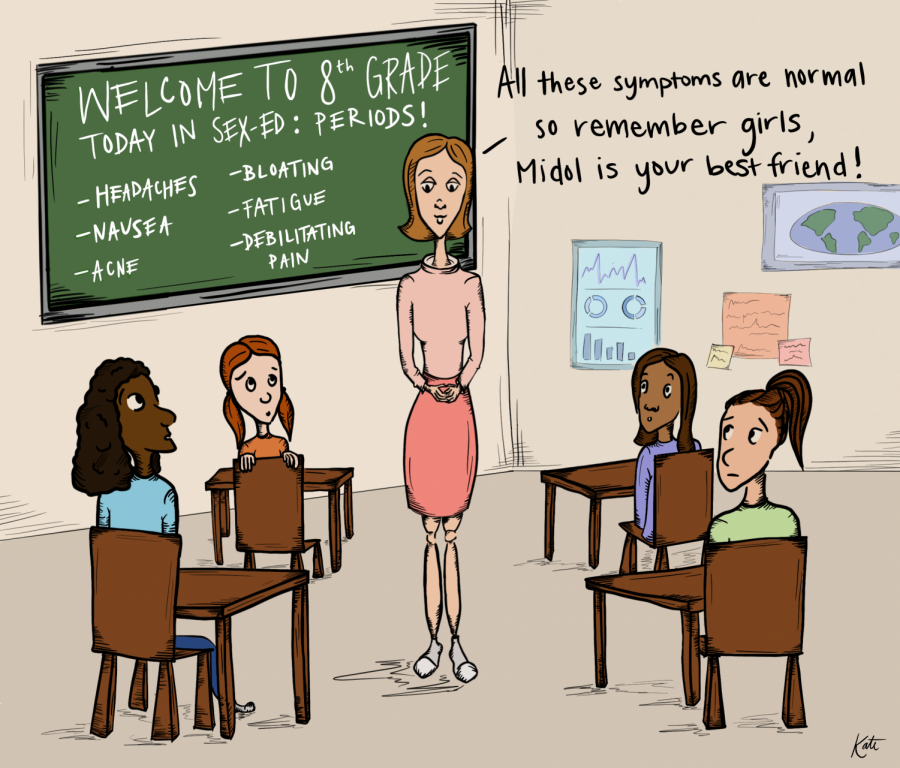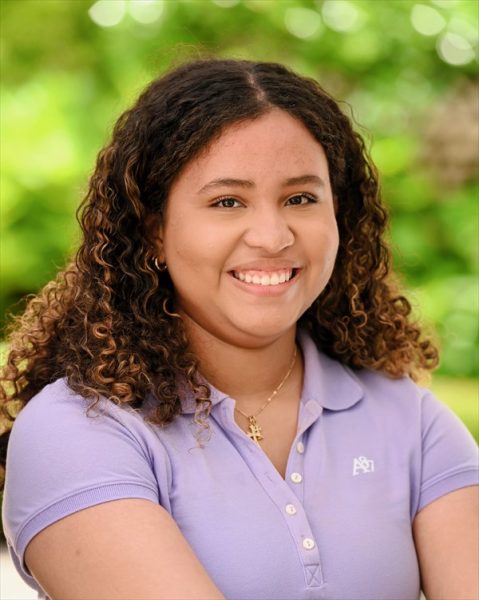Push back against pushing through
Young women should not disregard extreme menstrual pain
February 20, 2021
Taking notes throughout long block periods can be difficult enough, and coupled with menstrual cramps it can feel virtually impossible. Period cramps should not have to reach the level of incapacitation to be treated, and the use of medication should be normalized so teens and women do not have to work through the pain in addition to working on their normal responsibilities.
On average, females have their first periods between the ages of 11 and 14, and they last until around the age of 51, when menopause sets in. On average, menstruation occurs every 24-28 days for three to seven days, making periods a frequent aspect of women’s lives.
More than half of women experience pain from their menstruation cycle, and 32% to 40% experience pain so severe they have to miss work or school, according to the Office on Women’s Health.
It is not compassionate to ask anyone with a serious medical issue not to speak up about pain, yet most females sit idly by, too fearful to speak up about their discomfort. Because periods are natural and most women experience them in their lifetimes, the pain is normalized since it is so frequent.
The time to call a doctor is when the pain persists for more than three days, when you’re experiencing nausea or diarrhea in addition to the pain, or one has heavy or irregular periods.
The reality of it is, is that we have been conditioned to pretend our periods don’t exist.
Premenstrual Syndrome is not something that makes us “crazy” and “sensitive”— it is a hormonal process our bodies experience every month. We have been taught that acknowledging symptoms to the full extent is weak and dramatic, and that sanitary products are something to borrow from another woman secretly.
Most girls have mastered the technique of slipping the tampon up her sleeve to be inconspicuous. It is almost a teen right of passage to approach the school’s administrative assistant and ask in a hushed voice if they have any Advil to ease the cramps.
This is a dangerous mindset, because when pain becomes unbearable, it needs to be both openly addressed and treated.
Reaching out for help does not make a woman weak or dramatic — it is quite simply obtaining necessary professional assistance. We need to push back against the concept of pushing through the pain.










